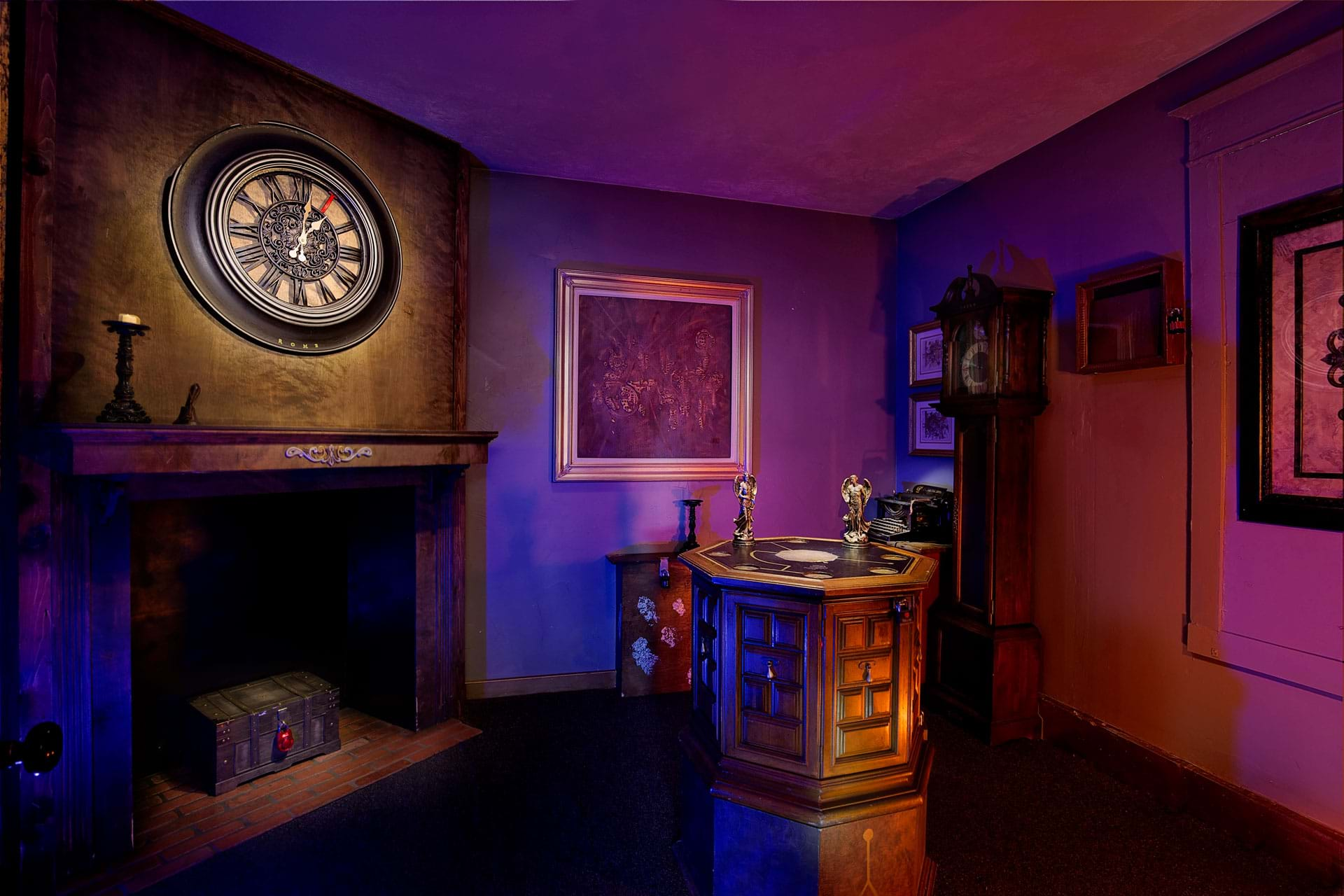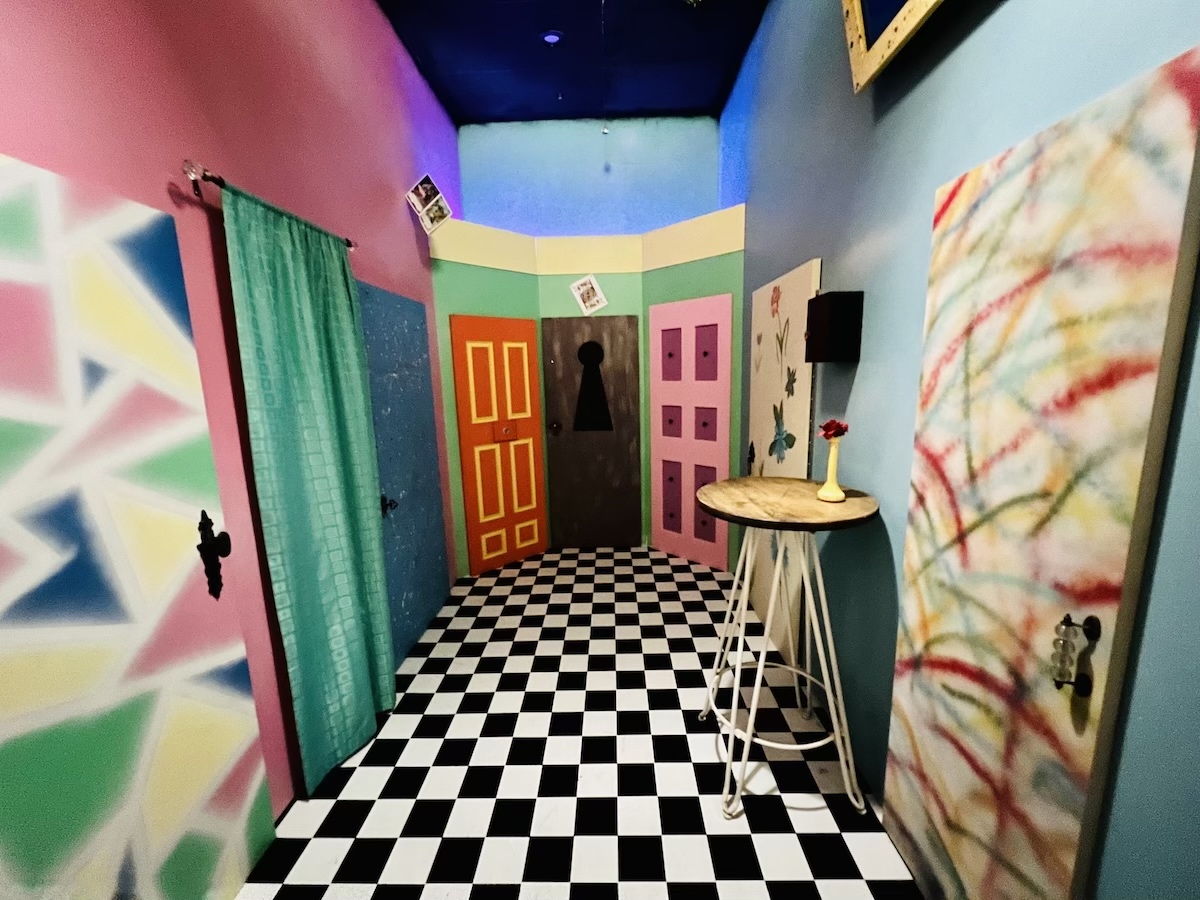Best Escape Room-- Examination Your Skills and Fix the Mystery
Best Escape Room-- Examination Your Skills and Fix the Mystery
Blog Article
Team Methods: Exactly How to Collaborate Efficiently in a Retreat Room
Navigating the complexities of a getaway area requires greater than plain enthusiasm; it calls for a well-coordinated method grounded in clear communication, calculated role jobs, and adept time monitoring. Teams need to actively pay attention to each member's insights, assign roles that align with private strengths, and maintain regular check-ins to make certain focus and prevent redundancy. By cultivating a setting that values communication and flexibility, groups can significantly enhance their effectiveness and success prices. The nuances of these approaches can change the experience, yet exactly how exactly can they be applied to optimize the capacity for success?
Establish Clear Communication

To assist in clear communication, it is vital to designate a central factor of contact for details dissemination. Short, concentrated updates from each group member can keep the team informed without frustrating them with info.

Designate Roles Tactically
While clear interaction establishes the structure for effective synergy, assigning duties purposefully guarantees that each team participant's strengths are utilized efficiently. In a getaway area situation, the time-sensitive and intricate nature of obstacles requires an efficient strategy to job delegation. By identifying and leveraging private proficiencies, groups can enhance their analytical capacities and enhance general efficiency.
First, assess the distinct abilities and qualities of each participant. As an example, a person with an eager eye for information may master finding surprise objects, while a logical thinker could be better matched to fixing puzzles - best escape room. It's just as crucial to have a leader who can look after progression, handle the timeline, and make definitive telephone calls when necessary. This function typically needs solid organizational and interpersonal abilities.
Second, ensure that functions are versatile and versatile. As brand-new difficulties emerge, the team must be able to pivot, reallocating jobs as called for. This flexibility helps preserve energy and prevents traffic jams that can occur because of stiff duty tasks.
Ultimately, a critical technique to duty job not only maximizes the strengths of each staff member but likewise cultivates a cohesive environment, driving the team towards a successful escape.
Use Diverse Abilities
Identifying and utilizing the diverse abilities within your team can considerably boost your efficiency in a retreat area. Each team participant brings unique staminas to the table, and effectively leveraging these capabilities can accelerate analytical and enhance total performance. A group member with solid logical abilities might succeed at understanding helpful hints complex codes or patterns, while another with keen empirical capabilities might quickly spot surprise ideas that others might forget.
Urge group participants to voice their understandings and concepts promptly, guaranteeing that all possible remedies are considered. In addition, assigning tasks that line up with each member's toughness can prevent bottlenecks and make sure that development is constant.
In addition, variety in abilities commonly translates to diversity in thinking styles, which is vital in an escape space setting. While some obstacles may need sensible thinking and accuracy, others might take advantage of imaginative and lateral thinking. By recognizing and leveraging this variety, groups can deal with a wider series of obstacles better, consequently increasing their possibilities of a successful escape.
Manage Time Efficiently

Identify noticeable challenges and divide tasks based on group participants' strengths, making sure that nobody is still. This practice can assist maintain the group focused and stop time from slipping visite site away unnoticed.
Additionally, avoid passage vision. If a puzzle is taking also long, turn staff member or carry on to another challenge, returning later on with fresh point of views. Interaction is critical-- maintain everyone upgraded on solved problems and remaining jobs to prevent redundant initiatives.
Finally, utilize any tips or hints sparingly however tactically - best escape room. Recognizing when to ask for aid can conserve valuable time. By adhering to these time management concepts, teams can significantly improve their chances of an effective and delightful getaway space experience
Debrief and Reflect
Reflection is an important element of team development and improvement in the context of escape areas. When the obstacle is finished, whether efficiently or not, it is important for the group to engage check my site in an organized debriefing session. This procedure permits employee to evaluate their efficiency, determine strengths, and determine locations for renovation.
Begin the debrief by reviewing what worked out. Highlight details circumstances of effective communication, analytical, and collaboration. Identifying these positive behaviors strengthens them and urges their repetition in future challenges.
Discuss minutes of complication, miscommunication, or inadequate techniques. Motivate an open and constructive dialogue where group participants can share their perspectives without worry of objection.
Final Thought
In final thought, successful partnership in a retreat space is based upon clear interaction, strategic function projects, the effective application of diverse skills, and skillful time management. Normal check-ins and structured debriefings are important for preserving focus and promoting continuous renovation. By developing a natural and adaptive team atmosphere, the possibility of successfully resolving puzzles and accomplishing the goal of escaping the space is significantly improved. This strategy not only guarantees success however additionally promotes collective development and discovering.
Report this page